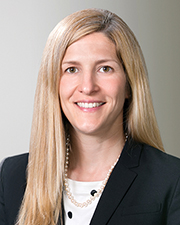Considerations for condo associations during pandemic - by Heather Gamache

Rackemann, Sawyer & Brewster
Condominium associations are confronting unique challenges related to Coronavirus disease 2019 (COVID-19) and combating its spread in their residential community given the use of shared common spaces such as lobbies, elevators, mail rooms and laundry facilities. COVID-19 has been declared a pandemic and is rapidly spreading throughout Massachusetts and the United States. In an effort to stop the spread, the Centers for Disease Control and Prevention and the Massachusetts Department of Public Health have issued guidelines and recommendations including but not limited to:
• Cleaning your hands often with soap and water or a hand sanitizer containing 60% alcohol;
• Avoiding close contact with other people (maintaining a distance of 6 feet);
• Staying home if you are sick; and
• Cleaning and disinfecting high touch areas.
(For additional information on guidelines and recommendations, visit the following websites: www.cdc.gov and www.mass.gov/orgs/department-of-public-health)
Condominium association leadership should consider reviewing their governing documents to determine whether it is reasonable and permissible to temporarily limit or control access to shared common spaces to reduce the spread of COVID-19. For example, condominium associations may consider creating a schedule for residents to follow for use of the mail room or shared laundry facility. It may also be advisable to place restrictions on congregating in lobbies and other shared spaces such as recreation facilities or common rooms, or to close them entirely until the spread of COVID-19 is under control. Condominium associations should also consider whether high touch common areas warrant additional cleaning and disinfecting during this time. If budget concerns arise over additional cleaning costs, a special assessment may be required to cover the unexpected expense of maintaining a clean and safe environment for condominium residents.
Similar issues will likely arise regarding governance of condominium associations, large and small, during this time. It may be necessary to hold meetings, and possibly board elections, virtually rather than in-person as is often required under governing documents. It may also be necessary to disseminate condominium-wide notices electronically in lieu of the traditional method of mailing. Again, condominium associations should carefully review their governing documents to determine whether, and to what extent, temporary changes can be made to promote adherence with the guidelines and recommendations referenced above to maintain a safe and healthy residential community.
Heather Gamache is a litigation attorney at Rackemann, Sawyer & Brewster, Boston, Mass.
Atlantic Property Management expands facilities maintenance platform: Assigned two new facility management contracts in RI


Tenant Estoppel certificates: Navigating risks, responses and leverage - by Laura Kaplan

Connecticut’s Transfer Act will expire in 2026. What should property owners do now? - by Samuel Haydock

New Quonset pier supports small businesses and economic growth - by Steven J. King


 (1).png)







 (1).png)
